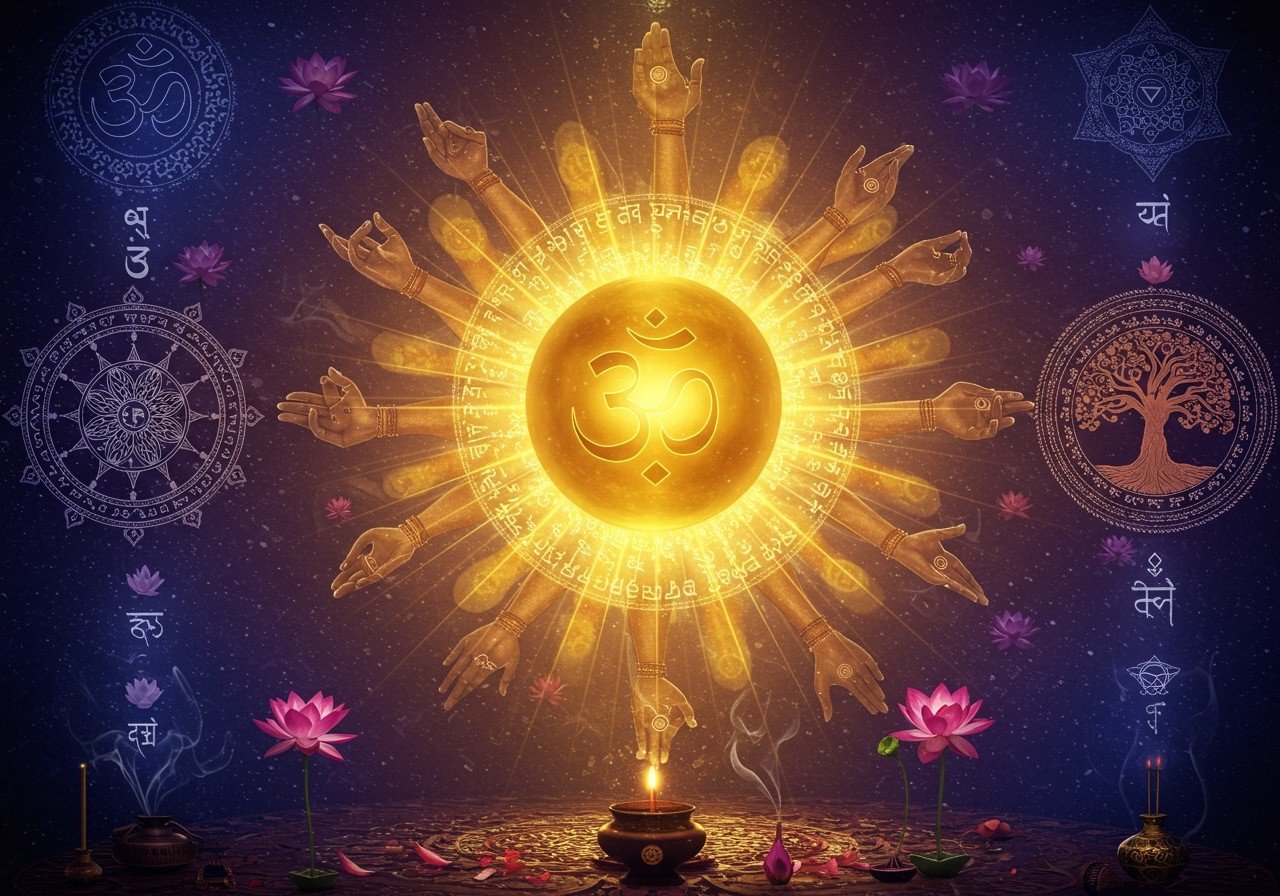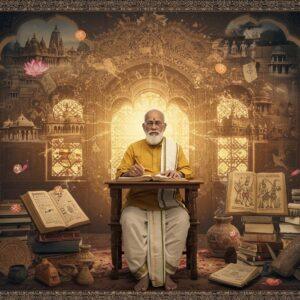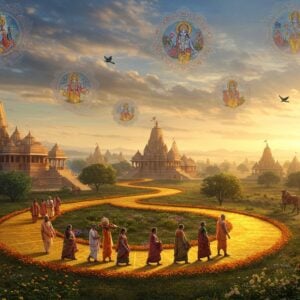
Brahman is a profound concept in Hindu philosophy, representing the ultimate, unchanging reality that transcends the world. This idea holds significance across various cultures and religions, reflecting universal truths. This blog explores how Brahman is interpreted and represented in different languages and contexts, offering insights for those who cherish cultural roots and authenticity.
Brahman in English
Translating Brahman into English presents challenges due to its unique cultural and philosophical background. Western philosophical traditions often grapple with ‘ultimate reality,’ but these frameworks may not fully capture Brahman’s essence. English-speaking scholars and practitioners approach Brahman through comparative religion studies, offering varied interpretations. Notable figures like Aldous Huxley, with his work ‘The Perennial Philosophy,’ explore Brahman within a broader spiritual context. This comparative approach helps bridge the gap between Eastern and Western thought, providing a more accessible understanding for English speakers.
Brahman in Hindi
In Hindi, Brahman resonates deeply with India’s cultural and spiritual heritage. The word “Brahman” itself symbolizes the infinite and eternal. Hindi literature, including traditional texts like the Ramcharitmanas, reveals Brahman’s significance. This epic poem narrates Lord Rama’s life, frequently mentioning Brahman as the ultimate reality, demonstrating its integration into narrative and cultural understanding.
Modern interpretations in media and academia further explore Brahman in Hindi. Scholars analyze ancient texts, offering fresh perspectives. Television and films portray Brahman through stories that resonate with viewers’ spiritual journeys, making the concept more accessible to a wider audience.
Brahman in Sanskrit
Sanskrit, the origin of the term “Brahman,” provides a nuanced understanding. Ancient scriptures like the Upanishads and Bhagavad Gita delve into Brahman’s nature, describing it as the all-encompassing reality. The linguistic richness of Sanskrit, with words like *Sat-cit-ananda* (truth-consciousness-bliss), encapsulates Brahman’s essence.
Classical scholars like Adi Shankaracharya have significantly influenced Brahman’s interpretation. His commentaries on sacred texts emphasize non-duality, teaching that Atman (soul) is one with Brahman. This philosophy of Advaita Vedanta continues to inspire spiritual seekers, providing a framework for understanding the relationship between the individual and the ultimate reality.
Brahman in Comparative Religion
Brahman’s concept resonates with other world religions. In Taoism, the Tao parallels Brahman as a universal principle. Monotheistic religions perceive God as an ultimate reality akin to Brahman. These parallels facilitate interfaith dialogue and mutual respect.
Comparative religion studies highlight these connections. Scholars explore theological themes like divine nature and ethics in conversation with Indian traditions. Books like *Brahman: A Comparative Theology* examine these topics, bridging Western and Indian worldviews. This comparative study broadens theological resources and allows for a deeper examination of systematic theology across different faiths.
Cultural Significance and Modern Interpretations
In modern India, Brahman remains relevant. Indians cherish their cultural roots while embracing modernity. This blend influences how they perceive Brahman in contemporary society, adapting ancient wisdom to modern life.
Globalization introduces diverse ideas that shape understanding of Brahman. Modern spiritual leaders interpret it for today’s world, addressing current challenges. Popular culture, including literature, cinema, and digital media, explores Brahman’s themes, making the concept accessible and engaging for a wider audience.
How Poojn.in Supports Your Brahman-Related Spiritual Needs
Poojn.in offers a wide selection of items for those seeking to honor Lord Brahma and explore Brahman concepts. As India’s largest Dashakarma bhandar, we provide:
- Authentic Brahma puja items and ritual materials, ensuring you have the necessary tools for your practice.
- Sacred texts and scriptures discussing Brahman philosophy, providing deeper insights into this complex concept.
For those studying comparative religion or practicing interfaith worship, we offer:
- Books on Vedantic philosophy, allowing for a deeper understanding of Brahman’s core principles.
- Meditation supplies to aid your spiritual journey and connection with the divine.
Visit www.poojn.in to explore our complete collection and have them delivered to your doorstep. Our customer service team can guide you in selecting the right items.
Shop Now for Brahma Puja Items
Conclusion: Embracing Brahman Across Time and Culture
Brahman is a universal truth transcending language, culture, and religion. From Hindi expressions to Sanskrit wisdom, Brahman weaves through India’s spiritual tapestry. It’s celebrated in traditional rituals and modern interpretations, guiding individuals on their spiritual journeys.
Exploring Brahman across cultures reveals unifying values. This fosters mutual respect and understanding, enriching our collective human experience. In a changing world, Brahman’s timeless wisdom offers continuity and peace.
FAQs on Brahman
What is Brahman in English? Brahman in English refers to the ultimate reality or cosmic spirit in Hinduism, considered infinite and beyond full comprehension. It is often described as the ground of all being.
How is Brahman described in Hindi? In Hindi, Brahman is described as “ब्रह्म” (Brahm), representing the supreme cosmic spirit, the source of all creation, and the ultimate reality underlying the universe.
Lord Brahma – The Creator Deity in Hindu Religion
Lord Shiva Marble Dust Murti | Mahadev Murti | 5 inch (approx)


